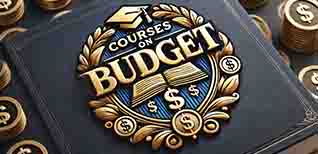What is a Aaron Sorkin Screenwriting for Cheap?
Aaron Sorkin wrote his first movie on cocktail napkins. Those napkins turned into A Few Good Men, starring Jack Nicholson. Now, the Academy Award-winning writer of The West Wing and The Social Network is teaching screenwriting. In this class, you’ll learn his rules of storytelling, dialogue, character development, and what makes a script actually sell. By the end, you’ll write screenplays that capture your audience’s attention.
LESSON PLAN
01-Introduction
Meet Aaron. He’s an Oscar winner, a TV hitmaker, and the writer of some of the smartest dramas ever to hit the screen. And now, he’s your instructor.
02-Intention & Obstacle
Every great story is born from intentions and obstacles. Learn how to build the “drive shaft” that will set your script in motion.
03-Story Ideas
How do you know if your idea is good enough to turn into a script? Aaron walks you through the steps every writer should take to test an idea—and decide whether it will work best in TV or film.
04-Developing Characters: Part 1
Aaron shares some of the decisions he made to develop some of his most unforgettable characters—like The Social Network’s Mark Zuckerberg and The West Wing’s Toby and Leo.
05-Developing Characters: Part 2
Your characters don’t have to be like you—or even likeable. Drawing on examples from A Few Good Men and Steve Jobs, Aaron explains why he always empathizes with his characters even if he disagrees with them.
06-Research
Good research is the key to a great script. Bad research is a waste of time. How can you tell the difference? Aaron shares lessons from Malice and The Social Network to help you gather the information you really need.
07-Incorporating Research
You have pages of research—now what? Avoid clunky exposition and learn how to seamlessly weave research into your story.
08-The Audience
Aaron knows that the audience isn’t just watching his work. They’re participating in it, too. Learn how to write stories that will keep them engaged and entertained.
09-Rules of Story
The rules of great drama aren’t new. Here, Aaron explains how most of them were laid out more than 2,000 years ago by Aristotle in his Poetics, and how to use those lessons to become a diagnostician for your own story ideas.
10-Film Story Arc
Page numbers don’t sound exciting, but they’re a great tool for tracking the act-structure and pacing of your story.
11-Writing Habits
Even Aaron gets writer’s block. Learn how he gets unstuck and what writing tools he uses to make sure he’s ready when inspiration strikes.
12-Group Workshop: Untitled by JJ Braider
While workshopping J.J.’s script, Aaron shares his tips on writing action scenes that move as fast on the page as they will on the screen.
13-Group Workshop: E is for Edie by Jeanie Bergen
The offbeat characters in Jeanie’s script are a hit with Aaron, who warns about the dangers of getting feedback from close-minded studio execs. (Warning: explicit content).
14-Group Workshop: Chronic by Roland Zaleski
Discussing Roland’s script, Aaron reveals a simple trick that writers can use to justify improbable events in their stories.
15-Group Workshop: The Merc by Evelyn Yves
Evelyn’s TV pilot kicks off a conversation about opening scenes and the importance of showing your audience something they’ve never seen before.
16-Group Workshop: From Here to Alli by Corey Wright
After workshopping Corey’s script and learning about his background, Aaron discusses the importance of having confidence as a writer, and shares his own origin story, starting with his days as a struggling New York actor.
17-Writing Scenes: Part 1
A great story is more than just a collection of great scenes. Learn how to give your script momentum from one beat to the next.
18-Writing Scenes: Part 2
Your script only has one opening scene. Make it memorable by introducing your theme, grabbing the audience, and setting up your characters’ intentions and obstacles.
19-Scene Case Study: Steve Jobs
In a study of a scene from Steve Jobs, Aaron explains how high stakes, strong intentions & obstacles, and competing tactics make for an exciting scene to write.
20-Scene Case Study: The West Wing
Aaron analyzes a classic scene from The West Wing: the scathing confrontation between President Bartlet (Martin Sheen) and Governor Robert Ritchie (James Brolin).
21-Writing Captivating Dialogue
If you want to write Aaron Sorkin-worthy dialogue, learn from the master himself on how to make music with your words and put them to the test by performing your own scenes out loud.
22-Dialogue Case Study: The West Wing
Aaron does a deep dive into the musical nuances of dialogue in the Bartlet–Ritchie scene.
23-Rewrites: First Draft
Rewrites aren’t a sign of a bad script; they’re a sign of a good writer. Hear how Aaron reworks and strengthens his screenplays during the rewriting process.
24-Rewrites: Notes
Rewrites aren’t a sign of a bad script; they’re a sign of a good writer. Hear how Aaron reworks and strengthens his screenplays with help from trusted advisors.
25-The West Wing Writers’ Room: Part 1
Aaron creates a virtual writers’ room to “break” part of the Season 5 premiere—an episode he’s never seen.
26-The West Wing Writers’ Room: Part 2
Aaron discusses what is needed in the teaser of the show and how to reverse engineer a plot.
27-The West Wing Writers’ Room: Part 3
Aaron and the students continue to work together to break episode 501 of The West Wing.
28-The West Wing Writers’ Room: Part 4
How can research drive the plot forward? Aaron and the students discuss the limitations of the 25th Amendment as a plot point.
29-The West Wing Writers’ Room: Part 5
Take Aaron’s advice: When you have great characters, use them. Learn how to keep your protagonists active.
30-The West Wing Writers’ Room: Part 6
Who’s got a bad idea? Aaron and the students run through various plot ideas as the writers’ room continues.
31-The West Wing Writers’ Room: Part 7
As Aaron says, “You don’t have to assault the audience with plot.” The writers discuss the value of pacing—plus the limits of reality within fiction.
32-The West Wing Writers’ Room: Part 8
Aaron and the students wrap up the virtual writers’ room and discuss lessons learned.
33-Group Workshop: Pitch Session
You’ve got a screenplay—now it’s time to pitch. Learn what questions Hollywood’s decision makers will ask you during a pitch and how to effectively answer them.
34-Group Workshop: Aaron Pitches Mission to Mars
Aaron turns the tables on his writers and pitches them his idea for a brand-new TV series called Mission to Mars.
35-Closing Thoughts
In the final lesson, Aaron offers his parting wisdom and leaves you with one more assignment that will last the rest of your life.
Aaron Sorkin Screenwriting Index:
📄 01-Introduction.mkv (39.48 MB)
📄 02-Intention & Obstacle.mkv (72.35 MB)
📄 03-Story Ideas.mkv (125.27 MB)
📄 04-Developing Characters Part 1.mkv (85.08 MB)
📄 05-Developing Characters Part 2.mkv (123.93 MB)
📄 06-Research.mkv (75.13 MB)
📄 07-Incorporating Research.mkv (79.52 MB)
📄 08-The Audience.mkv (87.08 MB)
📄 09-Rules of Story.mkv (65.87 MB)
📄 10-Film Story Arc.mkv (93.82 MB)
📄 11-Writing Habits.mkv (128.71 MB)
📄 12-Group Workshop-Untitled by JJ Braider.mkv (105.30 MB)
📄 13-Group Workshop-E is for Edie by Jeanie Bergen.mkv (237.15 MB)
📄 14-Group Workshop-Chronic by Roland Zaleski.mkv (162.89 MB)
📄 15-Group Workshop-The Merc by Evelyn Yves.mkv (124.28 MB)
📄 16-Group Workshop-From Here to Alli by Corey Wright.mkv (149.04 MB)
📄 17-Writing Scenes Part 1.mkv (76.96 MB)
📄 18-Writing Scenes Part 2.mkv (90.41 MB)
📄 19-Scene Case Study-Steve Jobs.mkv (74.57 MB)
📄 20-Scene Case Study-The West Wing.mkv (131.88 MB)
📄 21-Writing Captivating Dialogue.mkv (100.60 MB)
📄 22-Dialogue Case Study-The West Wing.mkv (92.25 MB)
📄 23-Rewrites-First Draft.mkv (67.06 MB)
📄 24-Rewrites-Notes.mkv (137.45 MB)
📄 25-The West Wing Writers’ Room Part 1.mkv (142.51 MB)
📄 26-The West Wing Writers’ Room Part 2.mkv (58.18 MB)
📄 27-The West Wing Writers’ Room Part 3.mkv (122.65 MB)
📄 28-The West Wing Writers’ Room Part 4.mkv (145.60 MB)
📄 29-The West Wing Writers’ Room Part 5.mkv (178.16 MB)
📄 30-The West Wing Writers’ Room Part 6.mkv (173.87 MB)
📄 31-The West Wing Writers’ Room Part 7.mkv (103.87 MB)
📄 32-The West Wing Writers’ Room Part 8.mkv (33.08 MB)
📄 33-Group Workshop-Pitch Session.mkv (109.16 MB)
📄 34-Group Workshop-Aaron Pitches Mission to Mars.mkv (82.42 MB)
📄 35-Closing Thoughts.mkv (116.60 MB)
📄 Workbook.pdf (1.57 MB)
💬 Feel free to REACH OUT to our CHAT support for personalized assistance and detailed information tailored to your needs. We’re here to help!








Reviews
There are no reviews yet.